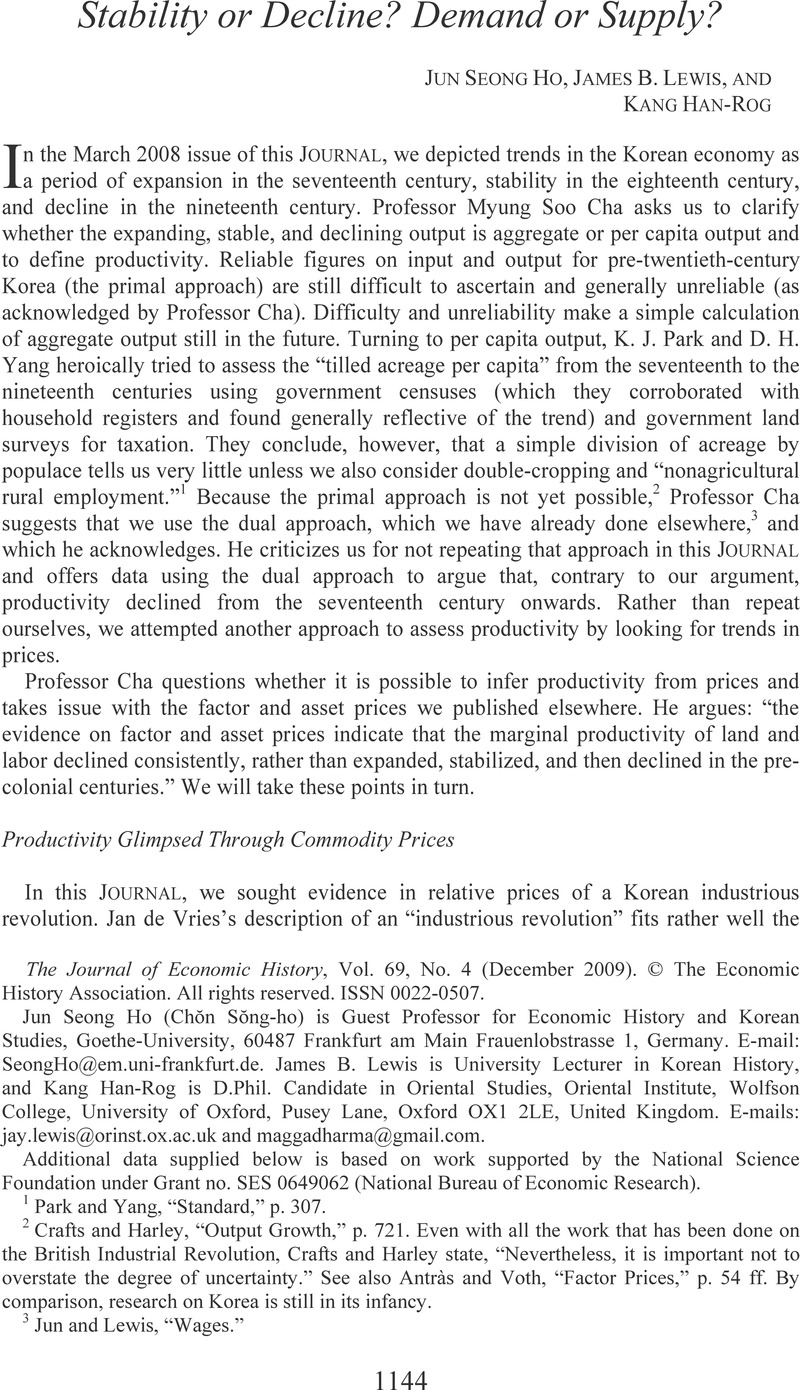Crossref Citations
This article has been cited by the following publications. This list is generated based on data provided by Crossref.
KIM, DUOL
and
PARK, KI‐JOO
2012.
A CLIOMETRIC REVOLUTION IN THE ECONOMIC HISTORY OF KOREA: A CRITICAL REVIEW.
Australian Economic History Review,
Vol. 52,
Issue. 1,
p.
85.
de Zwart, Pim
and
van Zanden, Jan Luiten
2018.
The Origins of Globalization.



